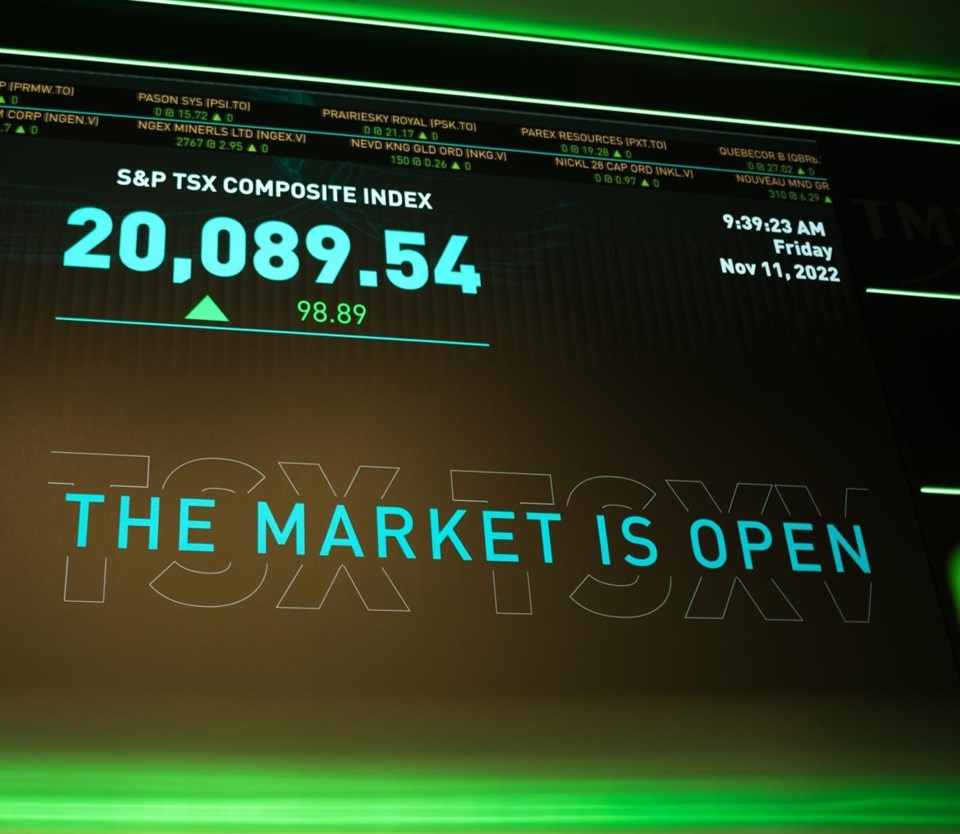TORONTO — Canada's main stock index eked out a small gain Wednesday as broad-based gains led by utility and technology stocks outweighed losses in energy and battery metals, while U.S. markets rose, led by technology.
The S&P/TSX composite index closed up 13.89 points at 19,034.81.
In New York, the Dow Jones industrial average was up 127.17 points at 33,129.55. The S&P 500 index was up 34.30 points at 4,263.75, while the Nasdaq composite was up 176.54 points at 13,236.01.
Investors are continuing to digest the idea that interest rates will remain higher for longer, a hard pill to swallow for the stock market, said John Zechner, chairman and lead equity manager at J Zechner Associates.
But a pair of economic reports showing some cooling helped release the pressure Wednesday, with 10-year U.S. Treasury yields retreating throughout the day from their highest level since 2007.
One report showed private sector hiring slowed by more than economists expected last month, while another report showed slowing growth in U.S. services industries, also by more than expected.
“We're back to the stage where bad news is good news,” Zechner said.
Investors are looking for signs that the economy is cooling under the pressure of higher rates, he said.
As usual, tech led the uptick as the sector tends to be more sensitive to interest rates.
If the economy continues to be weaker than expected, that will fan hope that the U.S. Federal Reserve could be done with interest rate hikes, he said. Meanwhile, it’s much more likely that the Bank of Canada is done with its hiking cycle, he added.
“Canada's already feeling the impact more. I think our housing market has been hit harder than the U.S.,” said Zechner.
But regardless of whether one more hike is on the horizon, the bigger question is how long rates will stay high, he said.
Energy stocks led the way down in Canada on Wednesday, with the TSX’s energy index down more than four per cent.
The price of oil sank throughout the day to less than US$85 per barrel, from more than US$89 per barrel the day before.
Investors may be profit-taking after Saudi Arabia and Russia confirmed their plan to continue their supply cuts, said Zechner.
The November crude contract was down US$5.01 at US$84.22 per barreland the November natural gas contract was up a penny at US$2.96 per mmBTU.
The Canadian dollar traded for 72.76 cents US compared with 72.93 cents US on Tuesday.
The December gold contract was down US$6.70 at US$1,834.80 an ounceand the December copper contract was down three cents at US$3.59 a pound.
— With files from The Associated Press
This report by The Canadian Press was first published Oct. 4, 2023.
Companies in this story: (TSX:GSPTSE, TSX:CADUSD)
Rosa Saba, The Canadian Press



